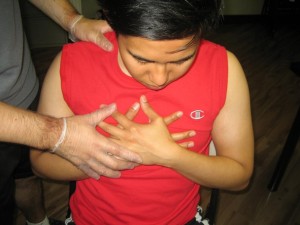Achalasia is a disorder in which the esophagus could not propel food into the stomach. The lower esophageal sphincter is a valve positioned at the end point of the esophagus that remains sealed while swallowing which results to the back flow of food.
The other symptoms that might arise include chest pain, vomiting of undigested food, weight loss and heartburn.
The condition is usually diagnosed among adults, but can also occur among children as well. In addition, the condition does not run in families.
What are the causes?

The reason why the esophageal muscles are unable to normally contract remains unknown. Based on studies conducted, there might be a connection to a virus or brought about by nerve cells that are part of the involuntary nervous system inside the muscular layers of the esophagus.
These nerve cells are attacked by the immune system of the individual and steadily degenerate for unknown reasons that are not yet fully understood.
Indications of achalasia
Initially, the symptoms might be trivial and even ignored by most, but over time, it becomes difficult to ingest food and liquids.
The usual indications that might arise include:
- Difficulty swallowing or dysphagia
- Coughing when lying down
- Regurgitation of indigested food and liquid
- Chest pain that strikingly resembles heartburn
- Aspiration when liquid, food and saliva are inhaled into the lungs
The individual might lose weight, have a sensation of having a lump in the throat and has difficulty burping.
In most cases, the symptoms are relatively mild initially and the individual might attempt to counteract by eating slowly or raising the neck or moving the shoulders back to assist with swallowing. Nevertheless, the symptoms eventually worsen over time.
Is the condition serious?
Steadily over a few years, individuals with achalasia suffer an increasing difficulty in eating solid food and drinking liquids. As the condition progresses, the condition triggers significant weight loss and malnutrition.
Individuals with achalasia face a small risk for developing esophageal cancer, especially if the obstruction has developed for a long time. The doctor might suggest regular endoscopic screening as part of the prevention plan and prompt discovery of esophageal cancer.
